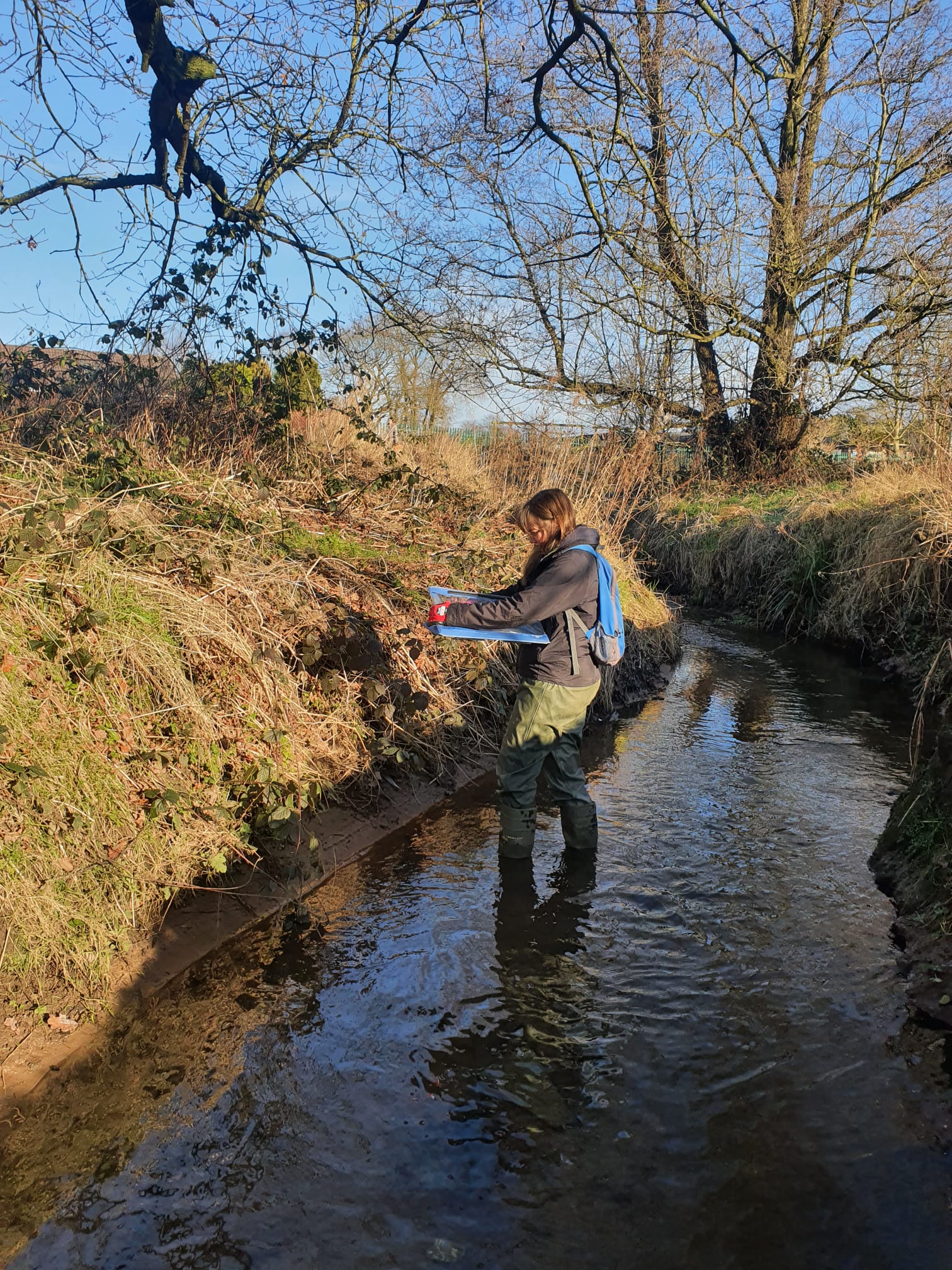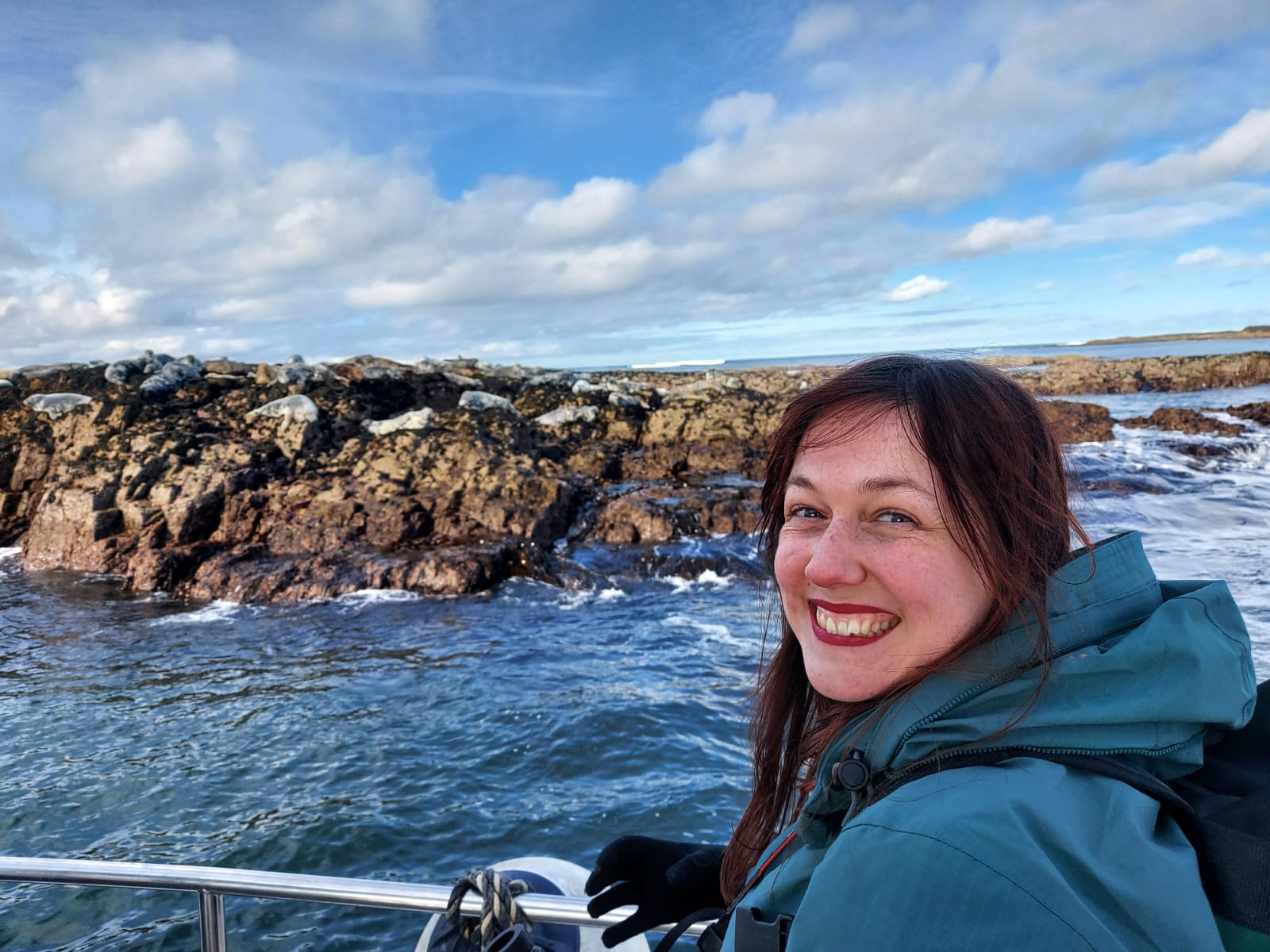A day in the life of our ecologists…
22 Jun 2023
22 Jun 2023
At Tyler Grange, we try to provide the best working environment we can for our teams. Over the years, we’ve tried (and admittedly sometimes failed) to introduce measures to help our Tribe be their most authentic selves. So, we sat down with Beth, one of our ecologists, to have a chat, and see what a day in the life of one of our ecologists is really like…
I’m quite a bad sleeper. I used to get up later than I probably should, but for the past few months I’ve been going to hot yoga in the mornings, so I’ve been waking up at 6.15 am which is very early for me! But, it does have a positive impact on the rest of my day when I wake up early.
I get back home at around eightish, which is quite late, actually, because then I don’t have long to get ready for work, but it’s worth it! At Tyler Grange, you’re encouraged to do anything outside of work that helps you to be your best or just become a happier person.
My days and weeks do vary, but it’s usually a fairly even split between field work and desk work. I get into the office at least 2 days a week or work from home, and then field work is interspersed between that. From April onwards, there’s just going to be a lot more field work because survey season begins, so it’s a case of being flexible with it really.
In terms of the work we do for our clients, we’ll begin by doing a preliminary ecological assessment. We’ll carry out a desk study first. This includes things like looking at aerial views of the site, mapping out areas and looking through species records of what species, particularly protected species, are local to the area.
Then, we go to the site and look at the habitats. We see if there’s potential for other protected species there, like bat roosts in buildings or trees, for example. We might see signs of badgers, like prints or actual badger setts, or a habitat that’s suitable for water voles. From the first stage of assessment, we can then advise what surveys the client will need and carry them out.
When I’m working in the field, sometimes that can be on my own, sometimes with an ecology assistant. There are two assistant ecologists who come and help us do a lot of the fieldwork during the busy season. They’re really knowledgeable about ecology and they’ve worked in the sector before, but they might not know how to apply that to consultancy work, which is what we do. We try and teach them as much as possible throughout the season. For example, later on, today, I’m going to go out with one of our assistants and teach them about how to conduct a bat roost assessment on a building.
Occasionally I’ll need to do an evening bat survey, which starts around dusk time, perhaps once or twice a week during bat season. It involves travelling to a site and either walking around a nice field with a bat detector (if I am doing a bat transect) or observing trees or buildings to see if bats emerge (if I’m doing a bat emergence survey). I really enjoy doing them and often it doesn’t feel like work. We’re able to take the morning off the next day so we can have a proper rest!

Everything is so seasonal and the work that we carry out is constrained by that. For example, if we did an initial assessment for a site and we found out there was a bat roost or bat roost potential and it was just after bat survey season, the client would then have to wait until next year for us to carry out the bat surveys on the building.
If we carried out surveys out of ‘optimal’ season, they usually wouldn’t be valid, and wouldn’t be accepted by the local planning authority. This would mean we would have to carry out the surveys again, costing the client time and money.
Most companies are aware of the necessity of ecological surveys of their work, but sometimes we can encounter companies who only see it as a setback in terms of time and cost rather than ensuring we don’t impact important populations of wildlife in the area. A lot of people aren’t so positive about newts and bats. They get a bad rap for no good reason!
I love solving problems. Particularly when it comes to a constrained site and trying to conserve important ecological features!
Increasingly companies are required to hit a biodiversity net gain target. Biodiversity essentially means the variety of different plants and animals in a habitat so that it contributes to a healthy and sustainable ecosystem. When sites are being developed, they must prove that they can provide an increase in biodiversity of the habitats post-development. We play a major part by calculating their biodiversity values for them which requires a lot of problem-solving and may require tweaks in their masterplan for a site, which I can have an input into. Seeing a measured increase in a site’s biodiversity net gain is really satisfying to me and knowing it will have a positive impact on the area.
In terms of my favourite things, sometimes I can’t believe I get paid to do the things I do. When it’s a nice sunny day and I’m outside in gorgeous fields assessing the trees or looking for badger setts. It’s really cool. I’m very lucky.
Tyler Grange is also great at supporting you. They recognise when you’re doing a good job and there’s a culture of praise and recognition across all of it. There’s also a mentor programme, which I’ve found to be really helpful. It’s great to have someone to talk to about things either in or out of work, about you and your goals, and it doesn’t just have to be related to Tyler Grange either. I’ve found it has helped me feel more confident about my work and my abilities.
Sometimes there’s pressure on you as an ecologist as the first port of call to flag up issues for the client. Having a mentor to talk to has actually helped me to be a better ecologist because I think I can clear my mind a bit more rather than letting work and its stresses get to my head.
Home time varies depending on the time the day starts or where I’m working. As I mentioned, sometimes there’s work that takes place in the evening, but typically it’s around 4.30 pm-6.30 pm. To be honest, the only thing that makes me think about stopping working is what I’ll be having for my dinner, though I do think about that a lot – I love cooking.
After dinner, my partner and I might go for a walk or a cycle. There are some great places to walk near where I live, but I do find it difficult to switch off from ecology sometimes. Like, it’s a genuine problem – I never stop looking for badger setts!
We work a four-day week here at Tyler Grange, so I start planning for the next week at the end of the previous one, to try and keep a step ahead. This means that Mondays aren’t chaos and I can take full advantage of the extra day off. Sometimes I’ll take a long weekend, perhaps go camping, or spend the time visiting family. There are lots of opportunities for volunteer days, I’ve taken part in some with the Kindling Trust and done tidying and jobs in the winter months at Woodpark community food hub, as well as hedge laying at a site in Glazebury.
I’m not the best at going to bed early, but when you’ve spent a long day in the field, you get quite a bit of exercise, so you’re tired which helps you get a good night’s sleep! The work can sometimes be hard, and occasionally there are stressful parts to it, especially during peak survey season when the workload goes up a lot and the schedule is packed. Having something out of work like the yoga I do in the mornings or the walks and cycles I take in the evenings really helps you to chill out and ultimately be better when I get back to work!

Make sure you get into seasonal work. Also, join a volunteer bat group. You can learn how to use some of the tools, like a bat detector. And that kind of knowledge is so important for the ecology role. You’d get a head start if you know loads about bats or how to do a bat survey.
I started out in smaller consultancies. It can be hard to get that initial permanent job because it’s so seasonal, many places will only be able to take you on as a seasonal worker. When I first got into it, I had a seasonal position with a different consultancy on a zero-hour contract.
Tyler Grange doesn’t do zero-hour contracts, though and our seasonal ecologists are paid a good salary, which is the right way to do it. So, I’d advise someone to find a company like us, or better still, come and join us!